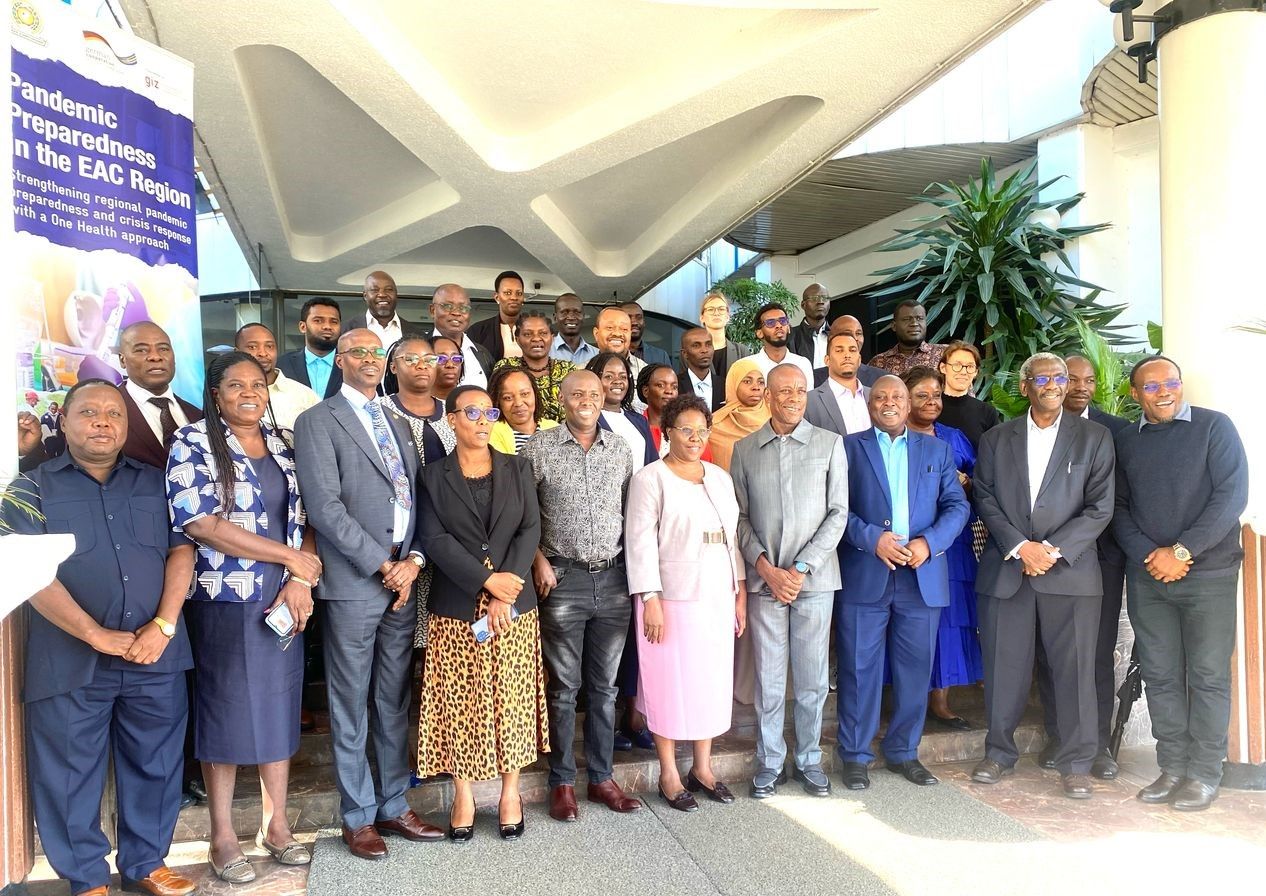Through trade of foods of animal origin, such as meat, fish, or milk products, foodborne diseases can spread and harm human health and economic productivity in the EAC.
According to estimates from the World Health Organization, over 91 million people fall ill from foodborne diseases in Africa, making it the continent with the highest disease burden per population. The economic burden of foodborne diseases exceeds USD 110 billion annually in low- and middle-income countries due to lost productivity and healthcare expenses.
Ensuring food is free from microbiological, chemical, or physical hazards is therefore key to protecting consumers’ health and fostering economic growth and productivity.
From 26 to 27, the EAC, supported by the German Federal Ministry for Economic Cooperation and Development via GIZ, facilitated a regional expert workshop to discuss better approaches to improve food safety in East Africa.
In this workshop regional experts from the EAC Secretariat, EAC Partner States working in human and animal health sectors and standards, along with representatives from the World Organization for Animal Health (WOAH), the Food and Agriculture Organization (FAO), and the International Livestock Research Institute (ILRI), validated a study on the quality of inspections of foods of animal origin in the EAC.
The study identified several key challenges in food inspections, including limited human resource capacities, insufficient coordination between sectors responsible for food safety, i.e., information sharing on traded foods and animal diseases, and inadequate infrastructure for detecting microbial hazards.
Based on these findings, the study suggests an assessment matrix for EAC Partner States to help evaluate the quality of inspections for commonly traded foods of animal origin and their potential microbial risks.
“As animals and humans cross our borders, pathogens spread across the region. Through safe food products, we can reduce infectious disease risks and enhance health and economic growth in East Africa,” emphasised Mr. Benjamin Murkomen, Head of Division, Port Health Services, Ministry of Health, Republic of Kenya, and Chair of the workshop.
Following the validation of the study, workshop participants submitted recommendations to further enhance inspection capacities for most traded animal-sourced foods with microbial risks. Accordingly, as a next step, the EAC Secretariat under the 'Support to Pandemic Preparedness in the EAC (PanPrep) project will support harmonisation of inspection guidelines across the region, design needs-based food inspection trainings and upgrade infrastructure for food inspections, with the overall goal to protect the health of East Africans.
“Adequate, nutritious, and safe food is our goal. Ensuring food safety requires the collaboration of many sectors and disciplines, including animal and human health, agriculture, and the environment, following a One Health approach,” highlighted Dr. Sam Okuthe of the FAO Emergency Centre for Transboundary Animal Diseases.
Find more information about the PanPrep project here.

